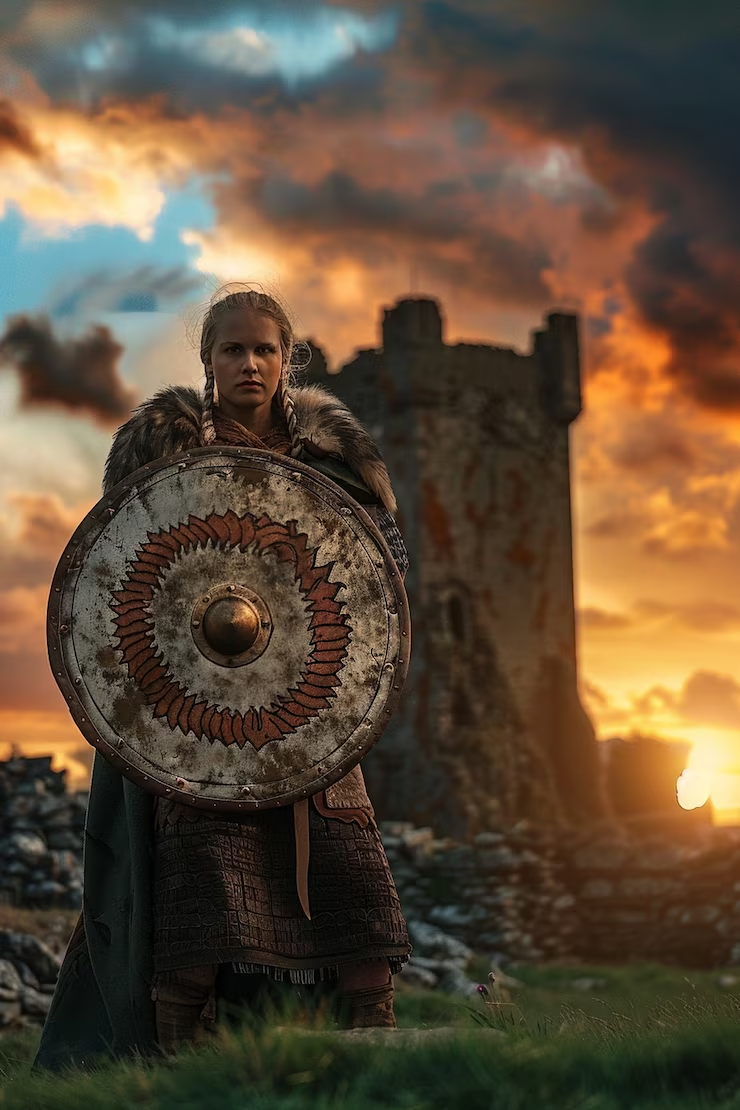Step into the sand-swept arenas of ancient Rome, where valor and brutality clashed in a spectacle that captivated millions. Gladiator were not just fighters; they were symbols of courage, rebellion, and the human spirit’s unyielding nature. Their battles were fought for glory, survival, and sometimes even freedom. Among these warriors was one name that ignited a spark of hope across an empire: Spartacus. His journey from chained gladiator to fearless leader redefined what it meant to resist oppression. Join us as we explore the legendary tales of gladiators who changed history—warriors whose legacies continue to resonate through time and culture today.
The rise of Spartacus: From gladiator to leader
Spartacus began his journey as a gladiator in the harsh arena of ancient Rome. Captured from Thrace, he was thrust into a brutal world where survival depended on skill and strength. He quickly gained notoriety for his remarkable fighting abilities.
But Spartacus was more than just a warrior; he embodied hope for the oppressed. His intelligence and charisma rallied fellow gladiators who shared dreams of freedom. Together, they transformed from mere combatants to an unstoppable force.
In 73 BCE, Spartacus led a revolt that caught the Roman Republic off guard. His army grew rapidly as slaves joined their ranks, inspired by visions of liberty. The rebellion marked a turning point in history—a challenge to Rome’s authority that echoed through time.
Spartacus became not only a leader but also a symbol of resistance against oppression, igniting passions that still resonate today.
Spartacus’ rebellion against the Roman Republic
Spartacus’ rebellion was a turning point in Roman history. It ignited the flames of resistance against oppression. After escaping from a gladiatorial school, he gathered an army of fellow captives and discontented slaves.
This uprising, known as the Third Servile War, began in 73 BCE. Spartacus led his followers through Italy, defeating Roman legions with strategic brilliance. His tactics were unorthodox but effective.
The rebellion attracted thousands seeking freedom from servitude. They fought not just for survival but for dignity and autonomy. The Romans were astounded by their tenacity and skill.
Despite initial victories, the tide turned for Spartacus. Eventually overwhelmed by superior numbers and resources, his forces faced defeat in 71 BCE. Yet even in loss, Spartacus became a symbol of hope—a testament to the enduring human spirit against tyranny.
The legacy of Spartacus and his impact on history
Spartacus stands as a symbol of resistance against oppression. His journey from a Thracian soldier to a gladiator in Rome captivated the imagination of many. With his leadership during the Third Servile War, he inspired thousands to fight for freedom.
His rebellion was not just about escaping bondage; it represented the struggle for dignity and rights. Many viewed Spartacus as a champion of the downtrodden, challenging an empire that thrived on subjugation.
The impact of Spartacus transcends his time. He has become an enduring figure in literature and film, embodying the spirit of defiance against tyrannical authority. Stories about him continue to resonate with those seeking justice today.
Through centuries, Spartacus’ legacy has ignited conversations around liberty and equality. His name remains synonymous with courage in the face of overwhelming odds—a testament to humanity’s ongoing quest for freedom.
Other famous gladiators and their stories
While Spartacus remains the most famous, several other gladiators etched their names in history. One notable figure is Commodus, the Roman Emperor who fancied himself a champion of the arena. He fought as a gladiator and staged elaborate matches to showcase his prowess. His reign blurred lines between ruler and performer.
Then there’s Crixus, a formidable Gaulish warrior and one of Spartacus’ key lieutenants during the revolt against Rome. Known for his strength and military skill, he led numerous battles before ultimately meeting his demise.
Another intriguing name is Oenomaus, an experienced fighter with exceptional combat skills. He became a mentor to many younger gladiators but met tragedy on the battlefield.
These figures highlight that behind every helmet was more than just muscle; they had stories filled with ambition, valor, and struggle that resonate even today.
Beyond the arena: Gladiators in popular culture
Gladiators have transcended the sands of ancient Rome, embedding themselves deeply into modern popular culture. Films like “Gladiator” and television series such as “Spartacus” have brought these fierce warriors back to life. They illustrate not just battles but also complex narratives of struggle and resilience.
Video games too embrace this theme, with titles allowing players to step into the role of a gladiator. Gamers can experience the thrill of combat while navigating political intrigue in ancient societies.
Books and graphic novels explore their lives beyond the arena. They delve into personal stories, giving voice to characters often seen only as fighters.
Art continues to capture their essence, from classical paintings that romanticize their valor to contemporary works that challenge perceptions about honor and brutality. This fusion of history with creativity ensures that gladiators remain a vivid part of our collective imagination.
Conclusion and reflection on the enduring fascination with gladiatorial combat
The legacy of gladiators continues to captivate us. Their stories speak not just of combat, but of struggle and resilience. The arena was a world where life hung in the balance, and every fight told a tale that transcended time.
Gladiatorial combat represented more than entertainment; it served as a reflection of society’s values and fears. Today, we see echoes of this fascination in movies, literature, and even video games. Spartacus remains an iconic figure symbolizing rebellion against oppression while inspiring countless adaptations across various media.
This enduring interest reveals our collective desire to understand bravery, sacrifice, and the human spirit’s strength. Gladiators remind us that history is not only about battles fought with swords but also about the ongoing battle for freedom and dignity—an aspect still relevant in today’s world.
As we explore their stories further or witness their reenactments on screen or stage, it’s clear: the allure of gladiators will continue to resonate through generations. Their courage resonates within each new story told—a testament to how these ancient warriors shaped our past while influencing our present narratives too.

